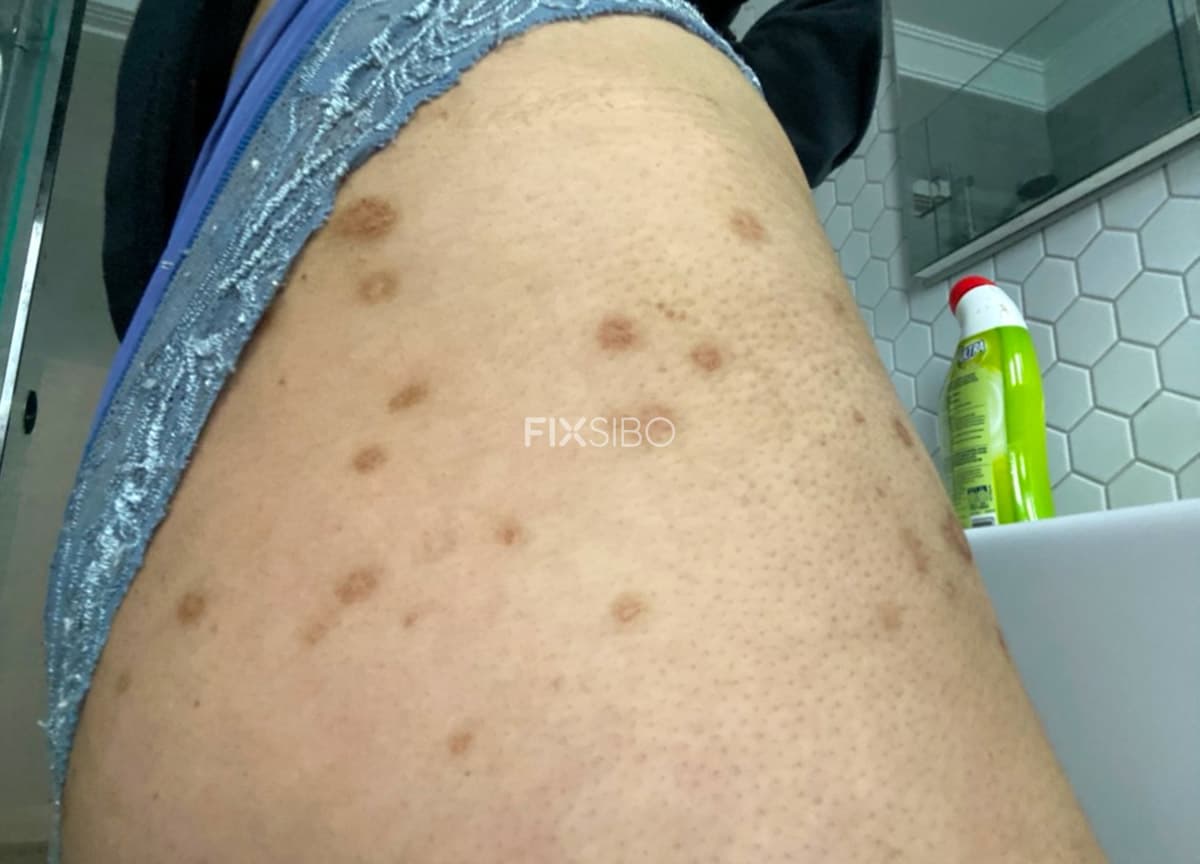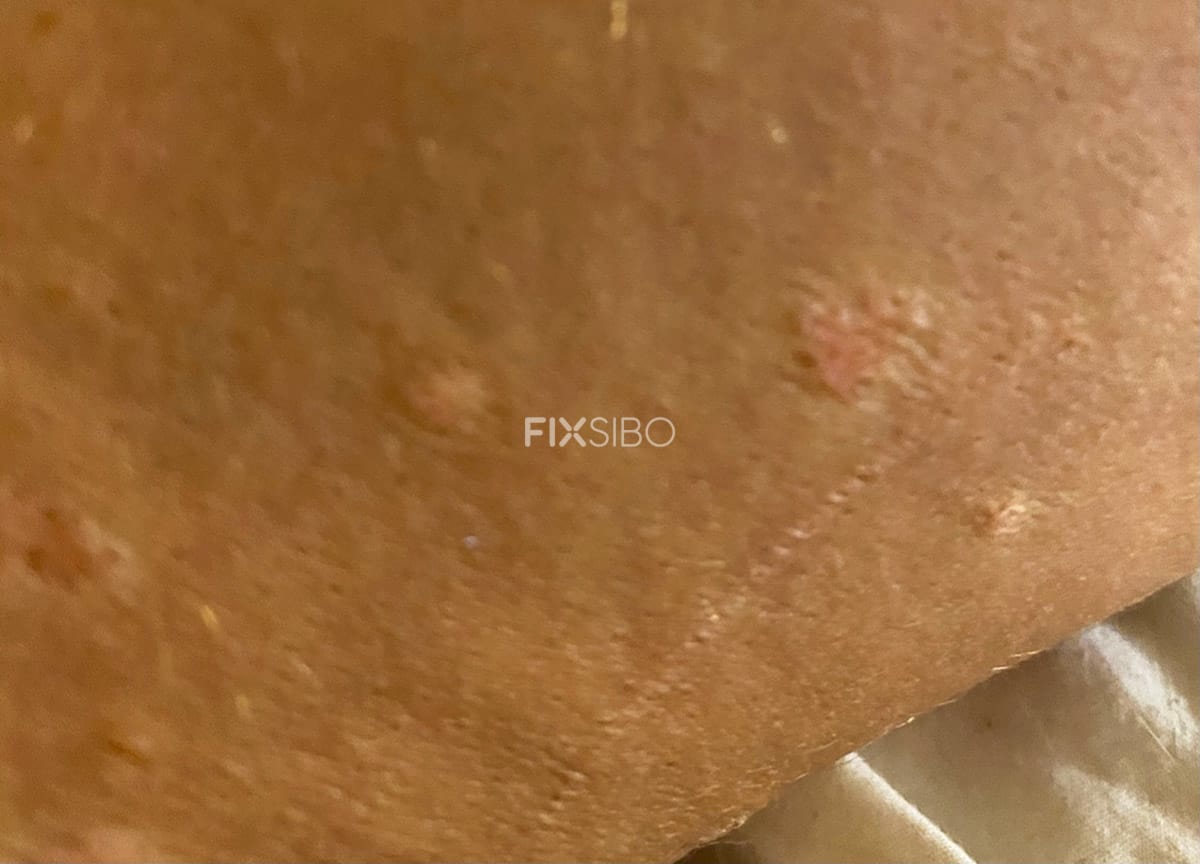First, what is Psoriasis?
‘Psoriasis is a condition in which skin cells build up and form scales and itchy, dry patches. Psoriasis is thought to be an immune system problem.’
Your gut is thought to be responsible for roughly 70% your immune system, so it seems like a no brainer the two are related. Yet, medicine has only very recently discovered some interesting findings. SIBO, gut imbalance and leaky gut have all been linked to Psoriasis.
Treatment for Psoriasis
Classic medical treatment aims to remove scales and stop skin cells from growing so quickly so symptoms are less severe.
What it doesn’t aim to do is treat the underlying cause. For so long medicine wasn’t quite sure as to why it happened, and to be honest the research is still murky.
As a result, standard treatments do not address the underlying cause. They are symptom treatment only.
They include:
- Topical ointments
- Light therapy
- Medication
- Steroids
- Anti-inflammatory drugs (as psoriasis can lead to swelling in the joints and tissue)
- Immune suppressing drugs
- Skincare to stop itching and pain
Gut issues, SIBO and psoriasis
I had minor psoriasis on my scalp at times during childhood. I only experienced it after an illness, which is common, because psoriasis is directly correlated to the immune response. My childhood psoriasis usually settled quickly, and it would have easily been mistaken for a bit of dandruff. A couple of washes with anti-dandruff shampoo always cleared it right up.
Like other symptom treatment measures, it worked due to the active ingredients it contained, including salicylic acid, selenium sulphide or coal tar. As I only experienced minor psoriasis after illness, this usually did the trick because I wasn’t constantly experiencing the trigger.

SIBO and psoriasis
When my SIBO was at its worst, right before I hit rock bottom, my psoriasis covered my head, neck, arms, glutes and my stomach. It was everywhere, it was hard to hide, and it wasn’t comfortable. I did my best not to scratch it, but I often did in my sleep.
I thought my gut issues and psoriasis were two completely unrelated problems, but shortly after treatment my psoriasis cleared up (I am talking within two weeks). When my gut is functioning well, I have no psoriasis.
Is psoriasis a sign of gut issues, SIBO or underlying gut conditions?
I got recurrences of SIBO before I figured out how to avoid relapse. Interesting, every time I was relapsing my psoriasis started to kick back up. It never got as bad as when I first had untreated SIBO, but it certainly reared its ugly head. It was actually a pretty accurate indicator I now had SIBO back and would test positive again very soon.
Note: I am a fake tanner – so my psoriasis on my body was usually stained as the dry patches of psoriasis picked up the tan excessively. However, this also makes it very clear just how many scales I had developed.

Recent research
It is only very recently we have discovered how linked psoriasis is to the gut. I mean the last few years recently. Here are some of the findings.
- Skin and Gut Microbiome in Psoriasis: Gaining Insight Into the Pathophysiology of It and Finding Novel Therapeutic Strategies
- Is psoriasis a bowel disease? Successful treatment with bile acids and bioflavonoids suggests it is
- Digestive Problems When You Have Psoriasis
- The skin and intestinal microbes of patients with psoriasis were significantly different from those of healthy subjects. – Psoriasis Is Associated With Elevated Gut IL-1α and Intestinal Microbiome Alterations
What Dr Freeman says of psoriasis and the gut
“It’s complicated and a lot is still unknown. You need to understand a bit about the mast cells that release histamine because they release a lot more than that.
Then this will make a bit more sense:
- Psoriasis Pathogenesis and Treatment
- The Interleukin-23/Interleukin-17 Axis Links Adaptive and Innate Immunity in Psoriasis
Loosely the theory would be:
1. Food is not only food for us, but also for our microbiome (the bacteria that live in our gut) – for example high FODMAPS encourage some bacteria to grow and low FODMAPS encourage others.
2. As well as food small molecules (say from plastics) may contribute to what happens
3. What happens in the gut is almost certainly pivots around mast cells and the bio active chemicals they release (histamine is only one of many) fighting off the microbiome
4. The psoriasis link is probably that the mast cells in the skin THINK (chemical mediator terms) they are protecting the body (gut) from a problem
5. SIBO places microbiome in the immune rich territory of the terminal ileum where there is much less tolerance for these bacteria invaders
More research is required in this space.”
1 Mayo Clinic, 2018
2 Cohen, 2021
0 Comments